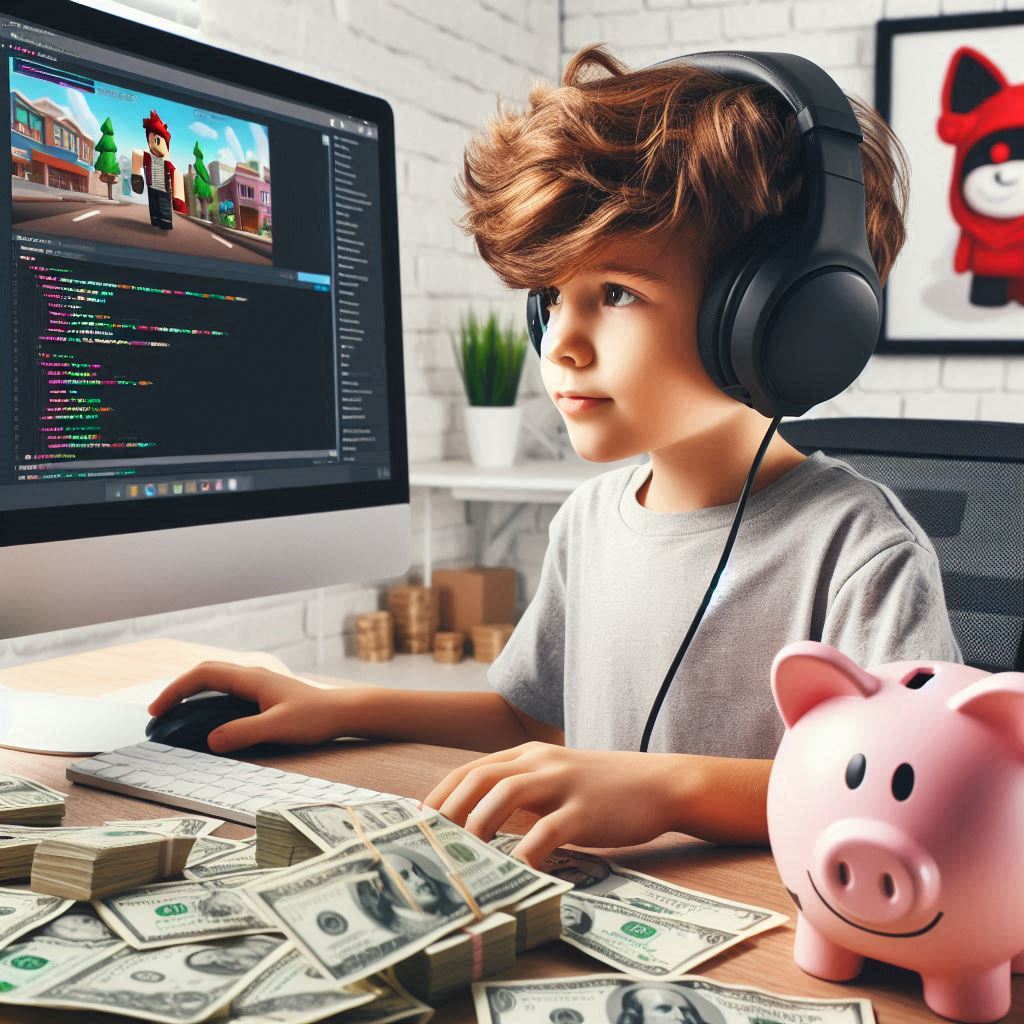The online gaming industry has seen exponential growth over the past decade. What was once a hobby for many has transformed into a viable career path with multiple income streams. From streaming on platforms like Twitch and YouTube to participating in competitive eSports, the opportunities for earning money through gaming are vast and varied. This article aims to explore the primary ways gamers can monetize their passion, offering practical advice and insights to help you turn your gaming skills into a profitable endeavor.
Monetizing Gameplay
Streaming on Platforms like Twitch and YouTube
Setting Up a Streaming Channel
Starting a successful streaming channel begins with choosing the right platform. Twitch and YouTube are the most popular options, each with its unique features and audience. Create an account, set up your profile, and invest in quality equipment, including a good microphone, camera, and streaming software.
Building an Audience
Consistency is key when building an audience. Stream regularly, engage with your viewers, and create a welcoming environment. Use social media to promote your streams and collaborate with other streamers to reach a wider audience.
Monetization Options
- Subscriptions: Viewers can subscribe to your channel for a monthly fee, often gaining access to exclusive content and perks.
- Donations: Many platforms allow viewers to donate money directly to streamers.
- Ads: Running ads during your streams can generate revenue, especially if you have a large viewer base.
- Sponsorships: Partnering with brands for sponsored content can be highly lucrative.
Creating and Uploading Videos
Types of Content
Consider creating various types of content, such as let’s plays, tutorials, game reviews, and highlight reels. Diversifying your content can attract a broader audience.
Growing a Subscriber Base
Optimizing your video titles, descriptions, and tags for SEO will help your videos reach more viewers. Engage with your audience through comments and community posts, and encourage viewers to subscribe and share your content.
Ad Revenue and Sponsorships
Once your channel meets certain criteria, you can enable ads to earn revenue from views. Additionally, as your channel grows, you may attract sponsorships from gaming companies looking to promote their products through your content.
Competitive Gaming
Participating in eSports
Understanding eSports
eSports involves competitive gaming at a professional level, with players and teams competing in organized tournaments. Popular eSports titles include League of Legends, Dota 2, and Fortnite.
Path to Becoming a Professional Player
To become a professional player, you’ll need to master a specific game, join a team, and participate in local and online tournaments. Building a reputation within the gaming community is essential.
Earnings from Tournaments and Sponsorships
Professional eSports players earn money through tournament prize pools, sponsorships, and salaries from their teams. Top players can make substantial incomes, often supplemented by streaming and content creation.
Online Tournaments and Competitions
Finding and Entering Online Tournaments
Various websites and platforms host online gaming tournaments with cash prizes. Websites like Battlefy, Toornament, and ESL provide information on upcoming competitions.
Prize Pools and Earnings
While the prize pools for online tournaments may not be as large as major eSports events, they can still provide a significant income stream, especially for skilled players who consistently place well.
Game Development and Design
Creating Indie Games
Tools and Platforms for Game Development
Indie game development has become more accessible thanks to tools like Unity, Unreal Engine, and GameMaker. These platforms offer resources and tutorials to help you create your own games.
Publishing and Selling Games
You can publish your indie games on platforms like Steam, Itch.io, and the Apple App Store. Consider offering a free demo to attract players and drive sales.
Earnings from Sales and In-Game Purchases
Revenue from game sales can be substantial, especially if your game gains popularity. Additionally, offering in-game purchases can provide ongoing income.
Freelance Game Design
Offering Services as a Game Designer
If you have skills in game design, consider freelancing. Offer your services on platforms like Upwork, Fiverr, and Freelancer to find clients looking for custom game design work.
Platforms to Find Clients
Joining online communities and forums related to game development can help you network with potential clients. Websites like Reddit and LinkedIn can also be valuable resources.
Potential Earnings and Portfolio Building
Freelance game design can be lucrative, especially if you build a strong portfolio and reputation. As you complete more projects, you can increase your rates and take on larger, more complex assignments.
Content Creation and Marketing
Writing Gaming Guides and Blogs
Setting Up a Blog or Website
Starting a blog or website focused on gaming guides and tips can attract a dedicated audience. Use platforms like WordPress or Wix to create a professional-looking site.
Monetization Strategies
- Ads: Display ads on your website to earn revenue from visitors.
- Affiliate Marketing: Promote gaming products and earn a commission on sales through affiliate links.
- Sponsored Content: Partner with brands to create sponsored posts and reviews.
Affiliate Marketing in Gaming
Choosing the Right Products to Promote
Select gaming products that align with your audience’s interests. This can include gaming hardware, software, and accessories.
Platforms and Networks for Gaming Affiliates
Join affiliate programs through networks like Amazon Associates, ShareASale, and CJ Affiliate. These platforms offer a wide range of gaming-related products to promote.
Earnings Potential and Best Practices
Affiliate marketing can be highly profitable if done correctly. Focus on creating valuable content that drives traffic to your affiliate links, and be transparent with your audience about your affiliate relationships.
Game Testing and QA
Becoming a Game Tester
Roles and Responsibilities
Game testers play a crucial role in the development process by identifying bugs and providing feedback on gameplay. Responsibilities include playing games extensively, documenting issues, and collaborating with developers.
Finding Opportunities
Game testing opportunities can be found through job boards, gaming companies’ websites, and freelance platforms. Networking within the gaming industry can also open doors to testing positions.
Earnings and Career Growth
While entry-level game testing positions may not be highly paid, there is potential for career growth into roles like QA lead or game producer. Experience in game testing can also lead to opportunities in other areas of game development.
Virtual Goods and Merchandise
Selling In-Game Items
Platforms for Selling Items
Platforms like Steam Marketplace, OPSkins, and in-game markets allow players to buy and sell virtual items. Popular items include skins, weapons, and other collectibles.
Types of Items and Demand
High-demand items, such as rare skins or limited-edition collectibles, can fetch significant prices. Understanding market trends and player preferences can help you identify profitable items to sell.
Creating and Selling Merchandise
Designing Gaming Merchandise
Create custom gaming merchandise, such as t-shirts, posters, and accessories. Use design tools like Adobe Illustrator or online services like Canva.
Platforms for Selling
Sell your merchandise on platforms like Etsy, Redbubble, and Teespring. These platforms handle production and shipping, allowing you to focus on design and marketing.
Earnings Potential
Earnings from merchandise sales can vary based on demand and marketing efforts. High-quality designs and effective promotion can lead to substantial income.
Educational and Coaching Services
Offering Coaching Services
Skills and Expertise Needed
To become a gaming coach, you’ll need expertise in a specific game and strong teaching skills. Identify your strengths and market them to potential clients.
Finding Clients and Setting Rates
Advertise your coaching services on social media, gaming forums, and platforms like Gamer Sensei. Set competitive rates based on your experience and demand.
Earnings Potential
Coaching can be highly profitable, especially for popular games with a large player base. Experienced coaches can charge premium rates for their services.
Creating Educational Content
Developing Courses and Tutorials
Create comprehensive courses and tutorials for players looking to improve their skills. Use platforms like Udemy, Skillshare, and YouTube to distribute your content.
Platforms to Sell Educational Content
Selling educational content on platforms like Teachable and Coursera can provide a steady income stream. Offer both free and paid content to attract a wider audience.
Earnings and Growth
Successful educational content creators can earn significant income, especially if their courses become popular. Continuously update and improve your content to maintain relevance and attract new students.
NFTs and Blockchain Gaming
Understanding NFTs in Gaming
Basics of NFTs and Blockchain
Non-fungible tokens (NFTs) are unique digital assets verified on a blockchain. In gaming, NFTs can represent in-game items, characters, and other collectibles.
Opportunities in Blockchain Gaming
Blockchain gaming offers opportunities for players to earn money through gameplay, trading NFTs, and participating in decentralized economies.
Earning from NFTs
Creating and Selling NFTs
Create unique NFTs and sell them on platforms like OpenSea, Rarible, and Foundation. Promote your NFTs through social media and gaming communities.
Participating in Blockchain-Based Games
Play blockchain-based games that offer rewards in the form of NFTs or cryptocurrency. Popular games include Axie Infinity, Decentraland, and The Sandbox.
Building a Personal Brand
Importance of Personal Branding
Steps to Build a Personal Brand in Gaming
Building a personal brand involves creating a unique identity that sets you apart from other gamers. Develop a consistent online presence, share your gaming journey, and engage with your audience.
Leveraging Social Media and Networking
Use social media platforms like Twitter, Instagram, and TikTok to connect with your audience and other gamers. Networking within the gaming community can lead to collaborations and new opportunities.
Collaborations and Partnerships
Finding and Establishing Partnerships
Collaborate with other gamers, content creators, and brands to expand your reach. Partnerships can include co-streaming, joint content creation, and sponsored projects.
Benefits and Earnings Potential
Collaborations and partnerships can significantly boost your earnings and exposure. Working with established brands can also enhance your credibility and attract new followers.
Legal and Financial Considerations
Understanding Taxes and Legalities
Tax Obligations for Gamers
Earning money through gaming may have tax implications. Understand your tax obligations and keep accurate records of your earnings and expenses.
Legal Considerations for Different Income Streams
Different income streams, such as streaming, game development, and merchandise sales, may have specific legal considerations. Consult with a legal professional to ensure compliance with relevant laws and regulations.
Managing Finances
Budgeting and Saving Strategies
Effective financial management is crucial for long-term success. Create a budget to track your income and expenses, and prioritize saving for future investments.
Investing Earnings for Long-Term Growth
Consider investing your earnings in diversified assets to build long-term wealth. Seek advice from financial experts to develop a sound investment strategy.
Conclusion
The online gaming industry offers numerous opportunities for earning income, whether you’re a skilled player, content creator, or game developer. By exploring and leveraging multiple income streams, you can turn your passion for gaming into a profitable career. Stay dedicated, keep learning, and embrace the joy of growing your presence in the gaming world. The future of gaming is bright, with endless possibilities for those willing to put in the effort and creativity.


